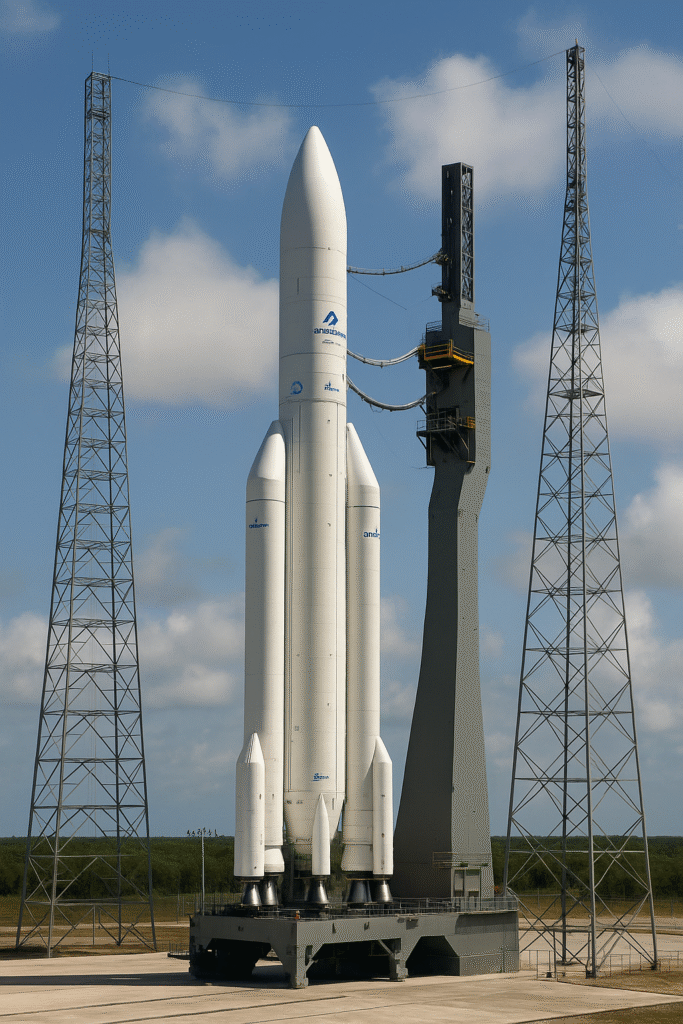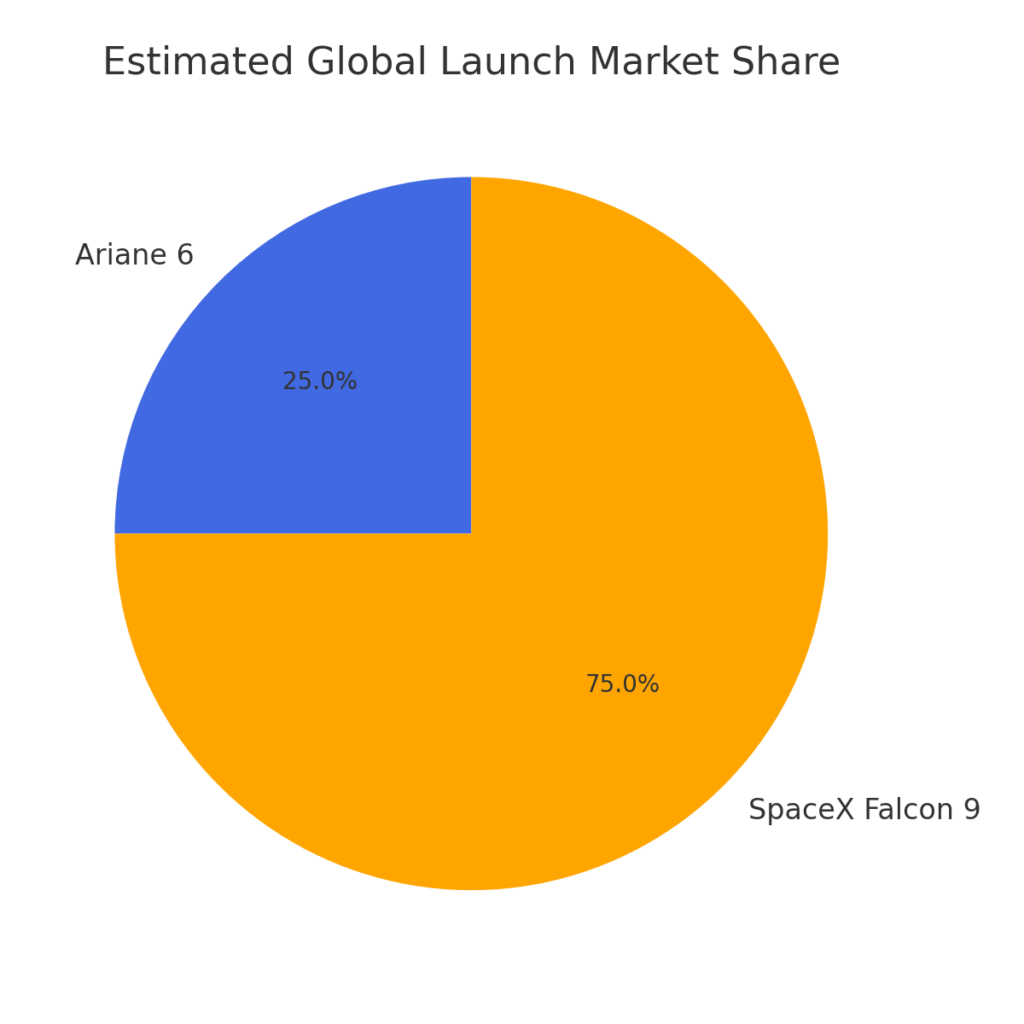
Europe’s Ariane 6 rocket is preparing for a high-profile launch aimed at competing with SpaceX. Discover its mission goals, strategic importance, and how it could reshape the global space race.
Europe’s Ariane 6 Rocket Steps Into the Spotlight
Europe is making a bold move in the global space race with the upcoming launch of the Ariane 6 rocket. Designed to reduce reliance on foreign launch providers, this new system marks a major step toward securing Europe’s independent access to space
The Ariane 6 program has already demonstrated its capability in earlier test flights, delivering satellites and test payloads into orbit with precision. The upcoming mission will be a critical milestone, showcasing the rocket’s readiness for regular commercial operations
also read SpaceX Targets 2028 for First Uncrewed Starship Mars Flight
. This launch is not just about technical performance; it’s about positioning Europe as a strong competitor to SpaceX, which currently dominates the market with its reusable Falcon 9. While Ariane 6 is an expendable design, its reliability and integration with
European industries make it a symbol of technological pride. With contracts already signed for major satellite deployments, Europe’s confidence in the Ariane 6 is growing, setting the stage for an exciting new era in space exploration.
Why the Ariane 6 Could Change the Game
The Ariane 6 rocket isn’t simply a new launch vehicle—it’s part of a broader strategy to give Europe complete control over its access to orbit. Each successful mission builds trust among commercial and governmental clients, strengthening
Europe’s position in the space industry. Unlike SpaceX, which focuses on cost efficiency through reusability, Ariane 6 emphasizes consistent performance and strategic independence. This approach means Europe can safeguard critical communications
aslo readStarlink Drops Monthly Fee to $99 in Latest Push to Land More U.S. Subscribers
, Earth observation, and scientific missions without external dependencies. While some critics argue that expendable rockets are less competitive in the long term, the current model allows for tried-and-tested engineering practices and a stable
manufacturing process. By focusing on reliability, scalability, and political unity, Ariane 6 could carve out a valuable niche in the global market, especially for clients who prioritize security and mission assurance over the lowest launch price.


Europe’s Strategy for Launch Autonomy
Developing the Ariane 6 is part of a larger vision to maintain sovereign control over Europe’s space capabilities. This autonomy ensures that European satellites can be launched on European rockets from European soil, avoiding reliance on foreign providers that
may prioritize their own national interests. The expendable design of Ariane 6 allows for simpler operations and a faster production cycle, enabling consistent launch schedules. The rocket’s modular configuration also gives it flexibility to carry a wide range of payloads
also read SpaceX Targets 2028 for First Uncrewed Starship Mars Flight
from small satellites to large scientific instruments. While SpaceX has captured much of the market with aggressive pricing, Europe’s focus is on dependable service, political alignment among member states, and a strong industrial base that benefits multiple European nations. This strategy may not immediately overtake competitors, but it ensures Europe remains a self-sufficient space power for decades to come.
The Road Ahead for Ariane 6
Looking forward, the success of Ariane 6 will depend on its ability to ramp up launches while keeping operational costs in check. Achieving a steady cadence of flights will be key to building trust and attracting more commercial clients.
Future upgrades could include partial reusability, which would help compete more directly with SpaceX and other emerging private launch companies. Partnerships with satellite operators, defense agencies, and scientific institutions
will also be essential to securing long-term demand. With the next launch set to demonstrate its full operational capabilities, Ariane 6 has the opportunity to prove
that Europe can remain competitive in a rapidly evolving space industry. If the program maintains momentum, it could redefine Europe’s role in global space exploration and strengthen its independence in the face of growing international competition.
